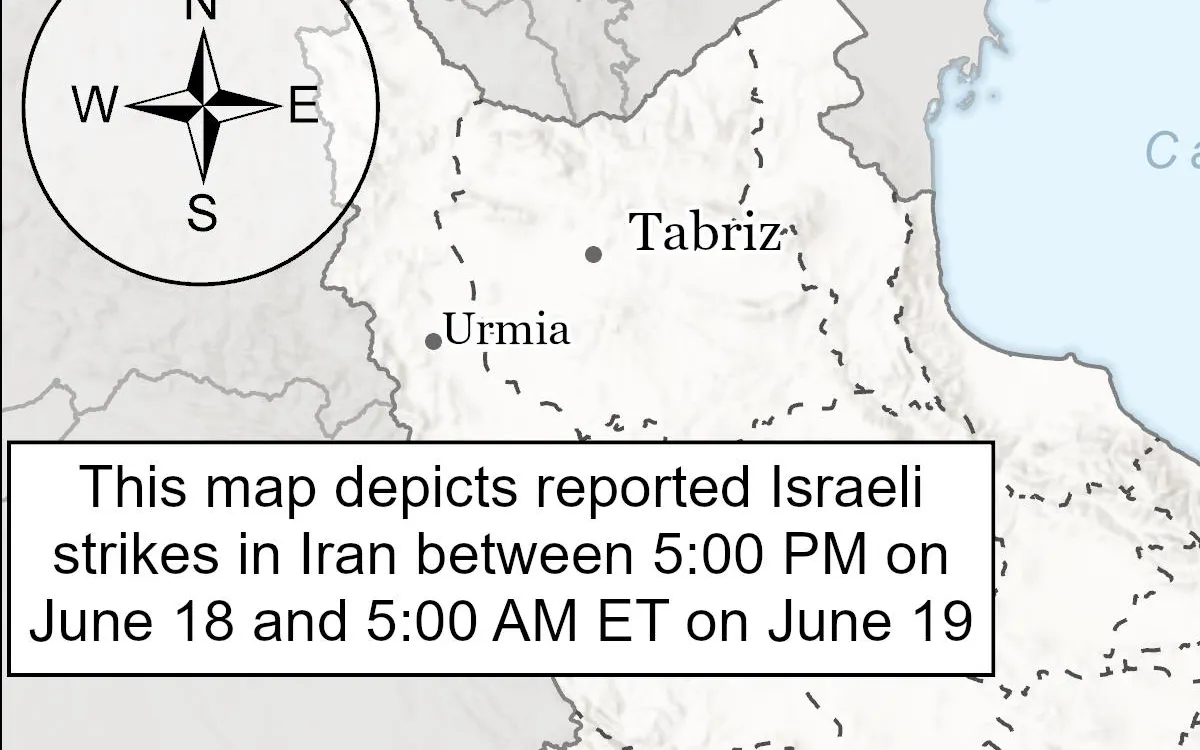
The Critical Threats Project (CTP) at the American Enterprise Institute and the Institute for the Study of War (ISW) are diligently providing daily updates and analyses concerning the escalating conflict between Iran and Israel. These updates include morning briefings focusing on recent exchanges of fire, with evening reports summarizing the comprehensive events from the preceding 24 hours and refining the information discussed earlier.
In a significant escalation, the Israel Defense Forces (IDF) targeted multiple Iranian nuclear facilities, including the Arak Heavy Water Reactor located in Markazi Province. This reactor has the potential to support the production of plutonium-based nuclear weapons, raising international security concerns. Additionally, the IDF struck a storage facility in Natanz, Esfahan Province, linked to Iran's nuclear program. These strikes represent a critical component of Israel's strategy to undermine Iran’s nuclear capabilities, particularly aimed at facilities that could facilitate the development of nuclear weapons.
Since June 12, the IDF has reportedly targeted at least six Ghadir radars using commercially available satellite imagery. These radar systems are capable of detecting aircraft from up to 1,100 kilometers away and are vital to Iran’s air defense infrastructure. The targeting of these radars is indicative of Israel’s broader strategy to maintain air superiority over Iran by degrading its air defense capabilities.
In retaliation, Iranian forces have launched multiple ballistic missile attacks on Israel, including a strike on the Soroka Medical Center in Beersheba. This attack, which occurred after the IDF’s airstrikes, resulted in over 200 injuries due to the barrage of missiles targeting central and southern Israel. Notably, the IDF intercepted all incoming missiles during the first wave of attacks, demonstrating the effectiveness of Israel's air defense systems.
In light of these missile strikes, Israeli Defense Minister Israel Katz has indicated that the IDF will intensify its attacks on strategic and governmental targets within Iran. This marks a significant escalation in Israel's military posture and signals a commitment to counter Iranian aggression decisively.
Amidst these developments, reports indicate that Iran is experiencing a near-total internet shutdown, which has affected the flow of information regarding Israeli airstrikes. Observations from the CTP-ISW suggest that the decrease in reports from Iranian social media is likely due to these widespread internet disruptions rather than a reduction in Israeli military operations.
The conflict between Iran and Israel continues to escalate as both sides engage in military actions that have significant implications for regional security. The ongoing exchanges of fire, coupled with the targeted strikes on nuclear facilities and missile launches, highlight the precarious nature of the situation. As Israel prepares for potential further military actions and Iran responds with its own aggression, the coming days will be crucial in determining the trajectory of this conflict.